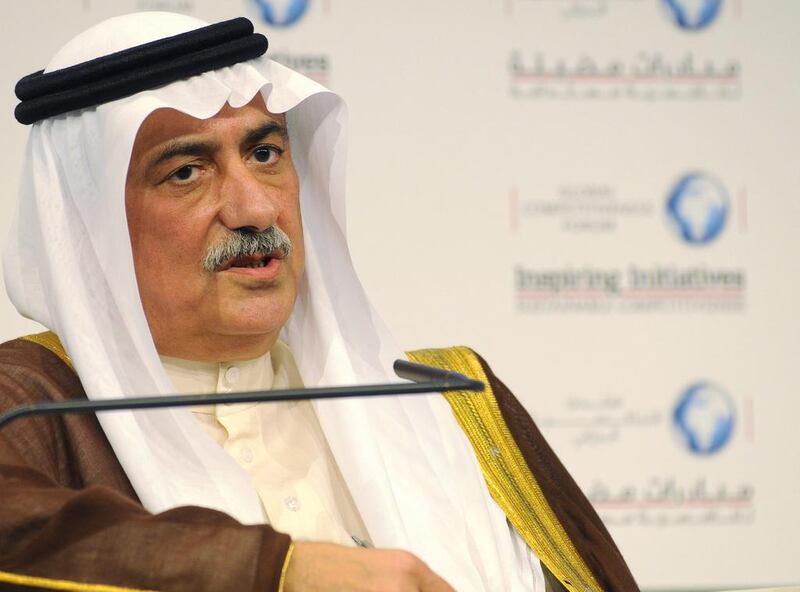Stocks gained after the finance minister Ibrahim Al Assaf, speaking in a televised interview late on Wednesday, said payments had been “regularised and will rise in the coming period.” While he didn’t offer details, three people familiar with the matter said the government has started paying some major builders as well as companies outside the construction industry.
Some companies were told 30 per cent to 40 per cent of the outstanding dues would be paid before the end of the year, with the remainder to be settled next year, two people said.
The world’s biggest oil exporter started delaying payments to contractors last year as it sought to rein in a budget deficit that reached about 15 per cent of gross domestic product. The austerity drive caused the non-oil economy to shrink in the final three months of last year and the first quarter of this year.
The announcement capped a week during which the kingdom raised US$17.5 billion from its first international bond sale, a record for emerging market. The sale, along with news that contractors were getting paid, helped the benchmark Tadawul All Share Index climb 2.3 per cent by the close of trading.
“With domestic funding sources stretched, it should deliver some short-term respite from the tightening liquidity conditions,” said Monica Malik, the chief economist at Abu Dhabi Commercial Bank, referring to the bond sale. “On the growth front, there is likely to be an increase in the government’s payment of arrears, supported by this issuance.”
The property development company Jabal Omar jumped 6.2 per cent., while the banking index gained 3.5 per cent.
The Saudi daily Okaz reported last month that the government had started to pay dues owed to Saudi Binladin Group, the kingdom's biggest construction company, citing Abdullah Basodan, an adviser to the company chairman Bakr bin Mohammed Binladin.
The kingdom is undergoing the biggest economic shakeup in its history in an attempt to reduce its reliance on oil. The government aims to generate more than $100bn in non-oil revenue a year by 2020 through measures including value-added taxation.
The IMF said on Tuesday the pace of austerity could ease “a little” next year, helping non-oil growth recover to 2.6 per cent from 0.3 per cent this year.
The fiscal consolidation, however, “needs to continue over the next five years,” said Masood Ahmed, the head of the IMF Middle East and Central Asia department.
* Bloomberg
business@thenational.ae
Follow The National's Business section on Twitter





